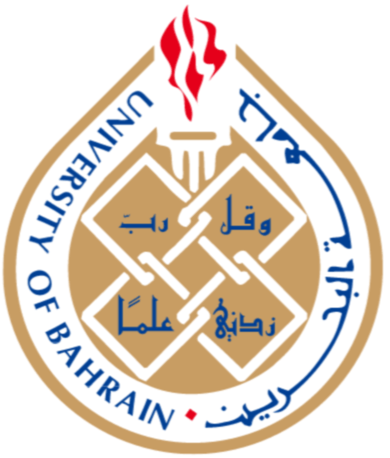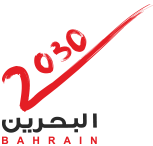NEWS
Participants Commend the Event Organized by UoB as A Specialized Knowledge Platform.. Smart Cities Forum Calls for a Trend Towards the Digital Twin in Building Smart Cities

Sakhir – University of Bahrain (Ali Al-Sabbagh and Khadija Khalid)
4 December 2021
Participants in the Smart Cities Forum stressed the importance of moving towards the digital twin in building parallel smart cities, and expand into the topics of the digital twin in the upcoming editions of the Forum, which recently concluded the work of its fourth edition.
The Forum was organized by the University of Bahrain (UoB), which attracted solid participation from academic universities, research centers, and civil institutions, in cooperation with the British International Institute for Engineering and Technology (IET).
A twin is an electronic reproduction of a living being or substance via a virtual platform, so it would have a semi-digital copy, representing a bridge between the digital world and the physical world.
The participants praised the vital and organizational role of the event, which has become an integrated platform for monitoring and linking smart city research, and representing it to researchers, students and entrepreneurs, praising the continuity that the Forum has enjoyed annually, which makes the University a house of expertise in this vital research field on smart cities.
In opening the three-day Forum, the President of UoB, Dr. Jawaher bint Shaheen Al-Mudhahki, stressed the importance of working to spread awareness among the future generation of researchers about the prospects for smart cities, calling for participatory studies to be conducted in the field of smart city projects and research, and she indicated that the main motive behind this Forum is to create a platform to bring together smart city researchers, promoters, and decision makers, to discuss and exchange ideas, and in addition, activate collaborative research, research and development projects in this field.
The Forum discussed 121 scientific papers, including 8 papers by keynote speakers, on several topics, including: the needs of smart cities, its new technologies, interactive architecture, smart urban planning and design solutions, homes and interiors that support technology, capabilities of robots in smart cities, smart cities infrastructure, the Internet of things (IoT) and smart applications, cybersecurity, smart homes, smart hospitals, and smart campuses.
On the second day of the event, Software Engineer at the Research and Development Corporation in British Columbia in Canada, Prof. Saurabh Vishwakarma, gave a lecture entitled “Building Smart Cities with Internet of Things Technologies”, in which he noted that the improvements in data analysis capabilities offered by IoT, which could lead to advances in various areas, from improvements in energy efficiency to increased automation. Also, he mentioned a number of concerns such as the limited maturity of these technologies, system complexity and interoperability, as well as cybersecurity and data privacy.
Furthermore, he stated that “These challenges can be overcome through an integrated approach, with the combined efforts of engineers from multiple disciplines.”
For his part, the founder and CEO of Electronic Algorithms Technology, Associate Professor M&A University in the United States of America, Issa Hakim, referred to smart cities, mega trends in technology, and the impact of cyber risks.
While Associate Professor of Computer Engineering at the Applied University in Jordan, Dr. Bilal Ayoub, gave a lecture entitled “The National Strategy for Artificial Intelligence: The Journey of the Smart Nation”, in which he referred to the main strategic policies and objectives of artificial intelligence, as well as related policies and initiatives, in addition to how to correctly build an artificial intelligence strategy for countries, and how to set national goals and develop projects.
On the second day, parallel sessions discussed the following topics: urban planning and design solutions, smart city design, algorithms, smart applications, new technologies in smart cities, and health care in smart cities.
While on the third day, Professor of Electronics and Communications, Dr. Madhuri Arun Joshi, who received a fellowship from the Institute of Engineering and Technology (IET), gave a lecture entitled: “The Role of Computer Vision in the Development of Smart Cities”.
The lecture reviewed healthcare monitoring systems, remote patient monitoring (RPM) for the elderly, chronic patients, people with disabilities, and people living in remote areas, smart city traffic monitoring systems, detection of traffic violations, and automatic vehicle detection. Also, it touched on the use of computer vision in investigating the safety of manpower and equipment, and traffic management.
On his part, Associate Professor from HITEC University, Taxila Cantonment in Pakistan, Dr. Abdulwaheed Bader, gave a lecture on Smart City Cooling Systems: Solar Cooling, detailing the types of solar thermal collectors for solar cooling.
Dr. Bader pointed out that solar cooling systems require more effort and time to plan when compared to conventional cooling systems due to the overall complexity of the thermal and hydraulic design. In addition, he added that economic factors such as the high initial cost and long payout periods are major barriers to its widespread use. Stressing that the use of solar energy in triple or multiple generation systems, i.e. for cooling, heating and electricity generation, can significantly reduce economic obstacles.
It is worth mentioning that parallel sessions covered smart building automation, IoT-based smart city, smart homes, smart hospitals, smart campuses, green computing, and big data and analytics.















